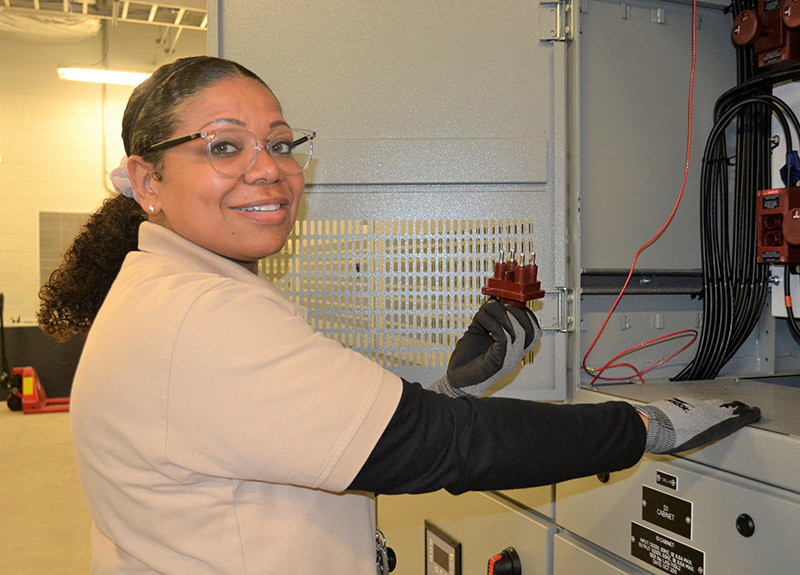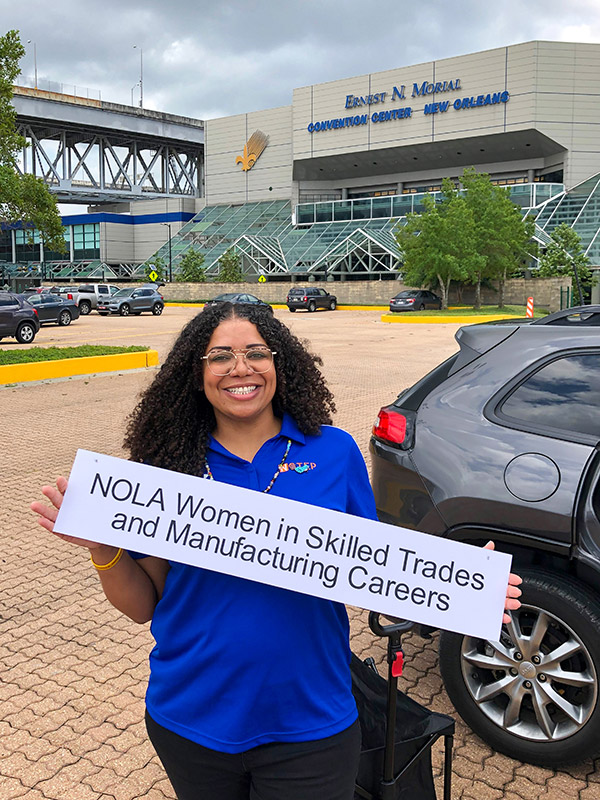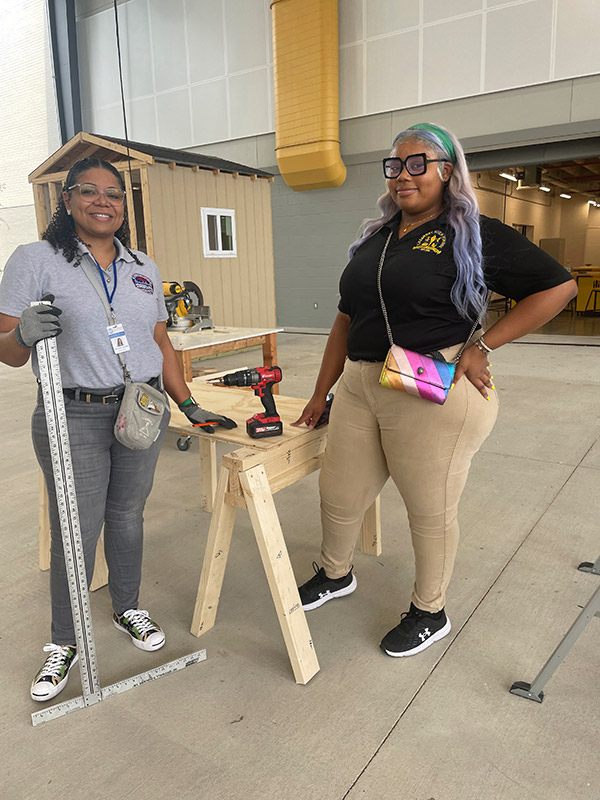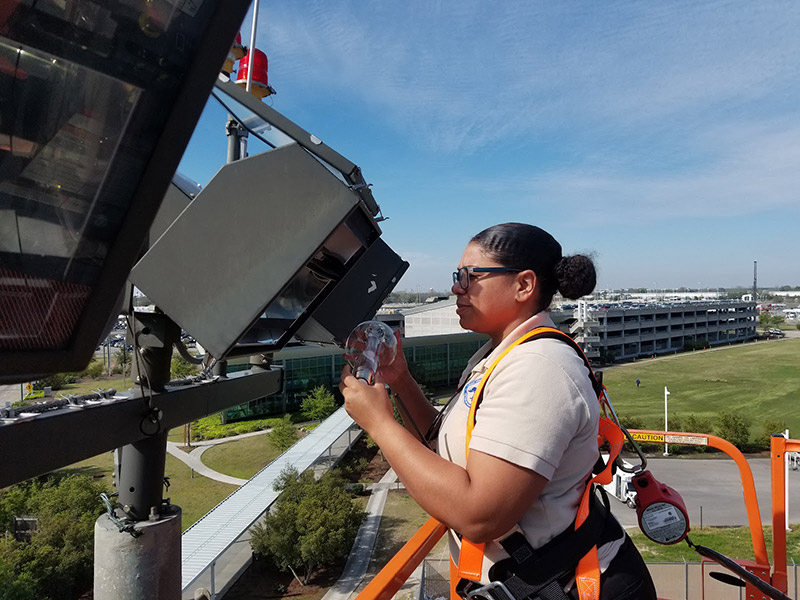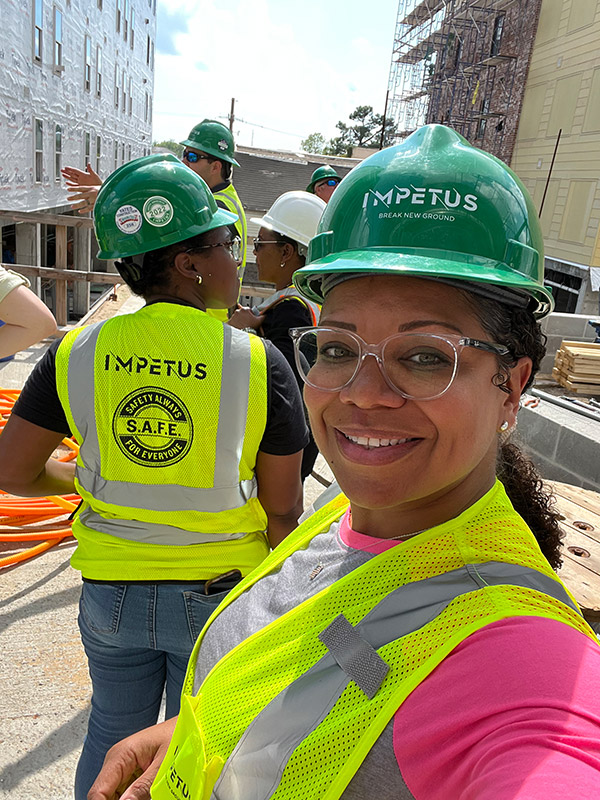Professional Journey:
I stumbled into the building trades. My father was a carpenter who worked on residential projects—general household repairs, additions, renovations, upgrades—but I didn’t know about the highly skilled, highly trained career paths in the skilled trades and had never thought about everything involved in new construction.
When I was 20 years old and enrolled in college, I worked as a laborer sweeping floors at Harrah’s Casino. I met a lot of electricians and learned about the union and apprenticeship. I saw the possibility for structure and access to an apprenticeship that teaches you everything to progress from novice to journeyman level. The opportunity to earn and learn appealed to me. I was at Xavier University, then switched to engineering at UNO, but I still needed a job. It felt like it was going to take too long before I would start seeing any financial benefit to support myself in engineering, and I really needed income to support myself.
I applied for an apprenticeship with the International Brotherhood of Electrical Workers (IBEW) and did five years of apprenticeship. Then Katrina hit, but I was able to finish my apprenticeship in 2006. I became a statewide licensed contractor in 2008. I spent many years working for contractors across the city, lots of commercial work—schools, clinics, office buildings, hospitals, all different kinds of sites. The VA hospital was the last construction project I worked on.
Alternative Career:
I was on track to follow in the footsteps of my mom who was a high school teacher and daycare center owner. I wanted to be an elementary school teacher because I liked teaching my nieces and nephews.
















